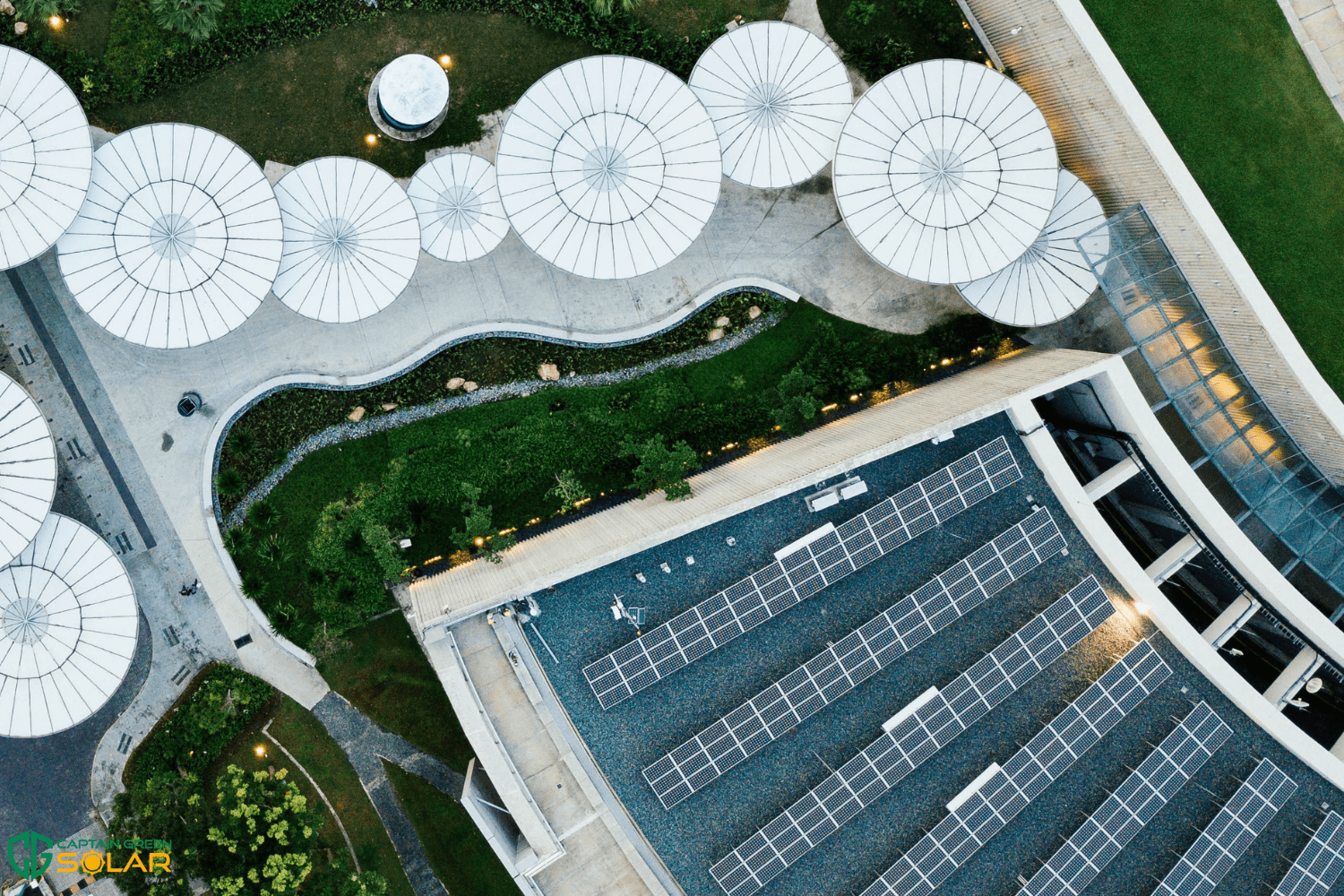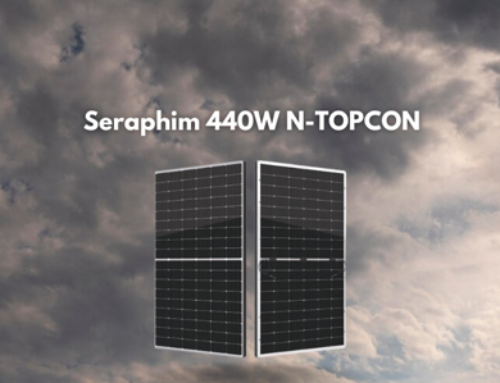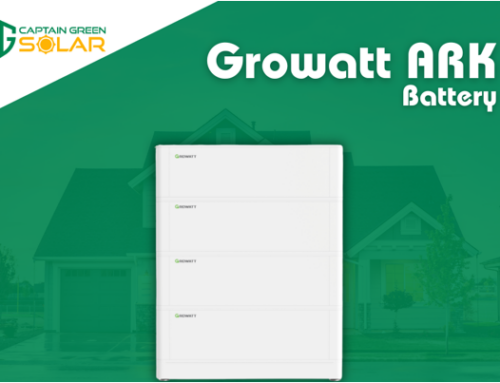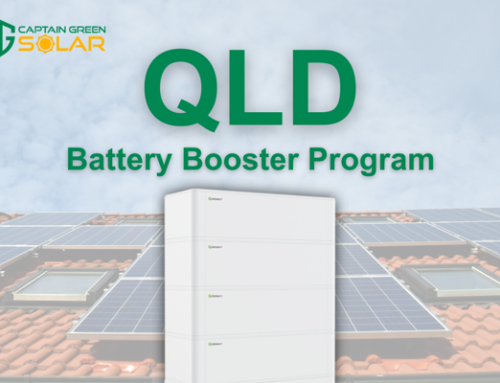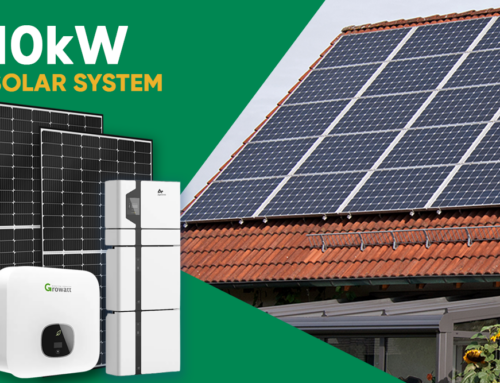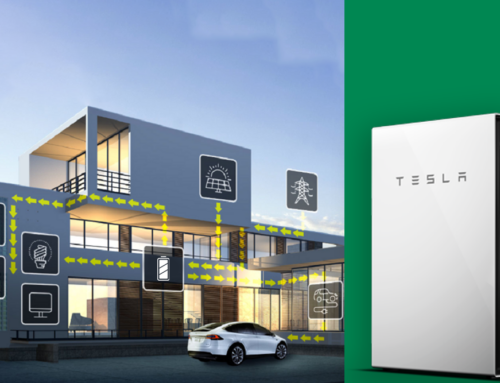Whether you’ve already invested in a solar panel system, or you’re looking to make the purchase, you may be wondering, “Do solar panels cool your roof?”
While discussions around solar panels discuss their efficiency, value for money, and feasibility for households and businesses are vital, it is also important to consider whether and how solar panels keep buildings cool.
Before we get further into it, it is essential to recognise that solar panels should not replace insulation material when constructing a building or roof. However, there are some benefits to having solar panels on your roof when it comes to keeping your building cool.
So, Do Solar Panels Cool Your Roof?
Unless you work on a roof, you might not realise how much heat energy a dark surface can absorb. In fact, on a hot summer’s day, a rooftop can reach temperatures of up to 70 degrees Celsius.
While roofing materials are engineered to handle the substantial heat, the high temperatures can increase wear and tear on the material. The heat in your roof will transfer into your home and building, raising the internal temperature. Even if your building and roof are well designed with adequate ventilation, it will still place a significant strain on your air conditioning system.
So, “Do solar panels cool your roof?” Yes. Let’s have a closer look at how this occurs.
How Do Solar Panels Keep Buildings Cool?
Solar panels keep your building cool by providing a physical cover and reducing the heat energy absorbed by your roof. People think solar panels generate heat when converting sunlight into electricity. However, this is not the case. In fact, the solar panels absorb heat that would be otherwise passed on to your roof.
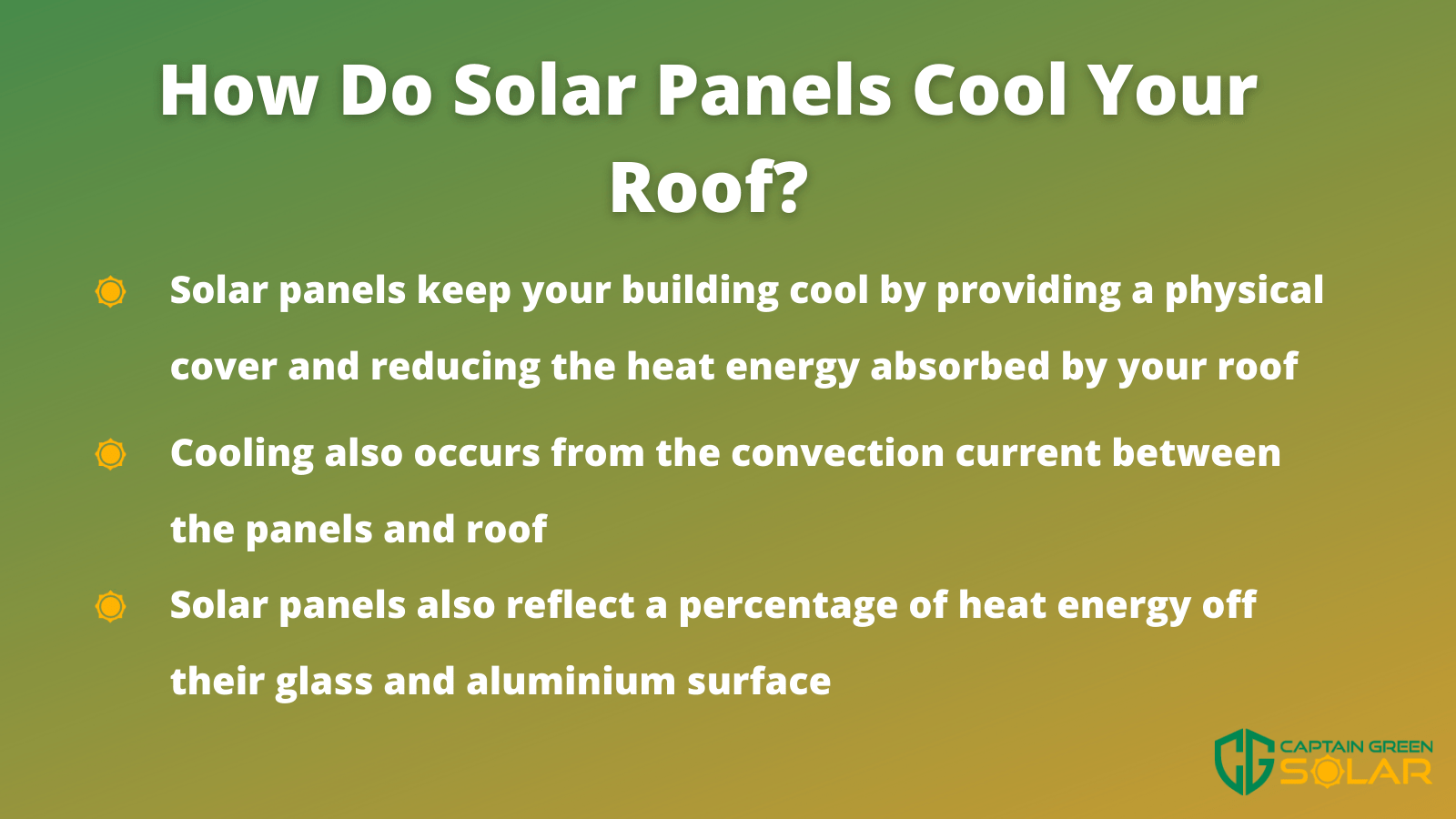
“But how do solar panels cool your roof by absorbing heat?” you may be wondering.
Another way to look at this is by thinking about shading. On a hot day, the coolest spot is in the shade. Solar panels provide a 24/7 shade covering on the top of your building, reducing the overall surface temperature of the roof.
Much of the heat absorbed by the panels are removed by what is known as a convection current. The convection current is the movement of air in the space between the panels and roof. The heat in the solar panels and roof materials is minimised as air travels between the two, reducing the overall temperature of the roof and further cooling the building. Depending on the roof’s architecture, you may even have tilted solar panels. Tilted arrays have a larger space between the panels and exterior of the roofing than other solar array types. This creates a more extensive channel in which air can travel between the panels and roof, further increasing cooling.
Additionally, the more efficient your solar panels are, the better the cooling effect will be. Heat also builds up on solar panels because of inefficient conversion. The more efficient your solar panel is at converting sunlight into electricity, the lower its operating temperature will be and the better its cooling effect on your roof will be.
A study conducted by a team of researchers at the University of California San Diego found that panels could reduce the surface temperature of a roof by up to 38%. That is huge, considering the ambient and roof temperatures we see here in Australia. While impressive, it is also important to note that every solar array is different. Results will vary with your solar positioning and roof depending on your roofs architecture, the surface area covered by your panels and the type of panels you have.
So, not only do solar panels help to keep your roof cool, but the panels take that energy that would otherwise be heating your building. This energy is then converted into a renewable energy source that you can use to power your building and appliances.
Additional Advantages of Installing Solar
Other than keeping your roof nice and cool, what are the other benefits of installing a solar panel system to your house or commercial property?
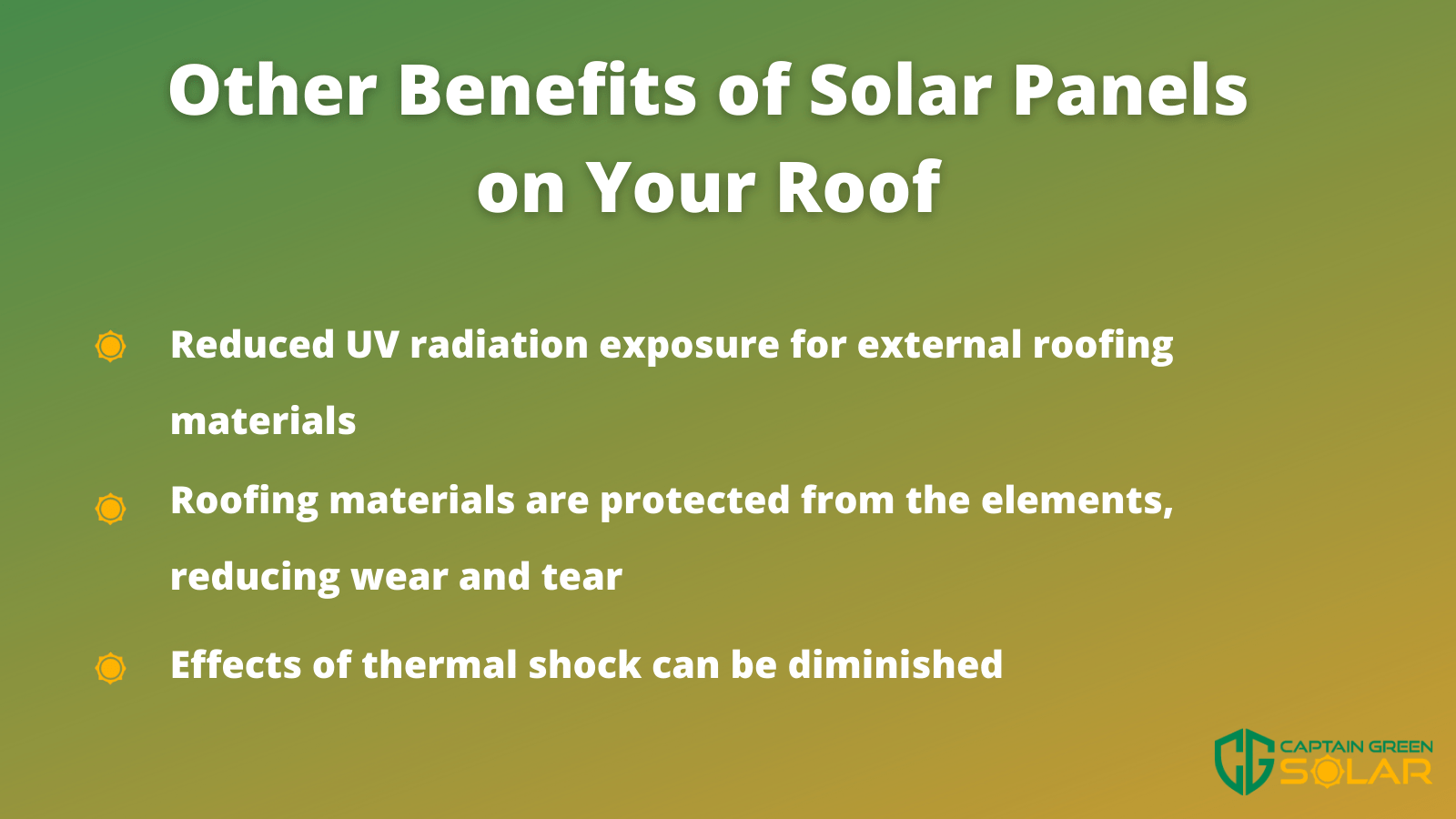
Increased Reflection of Heat Energy
How do solar panels help to insulate your roof in the summer? Panels do not insulate your roof from the heat in summer; however, provide the same cooling effect that you would experience with insulation.
Although solar cells are dark blue or black and absorb a lot of heat, they will still reflect away a percentage of the light that hits them. Solar panels are also made of aluminium frames and covered in glass, which will reflect some energy away. As more energy is reflected off your roof, it will absorb less heat. This results in a lower roof and building temperature.
Reduced Thermal Shock
In some climates, your roof can reach an extremely high temperature during the day and then quickly cool once the sun goes down. The extreme contrast in temperatures will cause your roofing materials to expand and contract. Over time this can lead to warping and gaps between your roofing materials, as a result of thermal shock.
Solar panels can help to prevent thermal shock as they prevent the roofing materials from reaching such high temperatures. Once the sun goes down, the solar panels will also help the roof retain some heat and reduce the rate at which the roofing materials cool. The reduced effects of thermal shock will extend the lifespan of your roofing material and protect the integrity of your roof structure.
Reduced UV Radiation
Depending on your roofing material, UV rays can dry out the oils on your roof. Especially with timber materials, UV can cause bleaching and cracking. Additionally, asphalt shingles can experience the same issue. These degrading effects occur over a significant number of years, so you won’t directly notice this taking place. The roofing materials under your solar panels will be protected from the elements and daily UV exposure. Having solar panels installed on your roof will not only help improve your building’s thermal efficiency and produce clean energy. It could also increase the lifespan of your roofing materials.
Reduction in Cooling Costs
With the reduced heat energy hitting your roof, solar panels also reduce the amount of energy you need to spend cooling down the building. The same study by the researchers at UC San Diego found that the panels’ cooling effect increased the buildings energy efficiency by 5%.
While the above statements demonstrate that solar panels can positively affect your building’s thermal efficiency, results will vary depending on how your panels are orientated and installed. When installing solar panels, the primary factor influencing their positioning and orientation should be to create the best conditions for efficient solar energy generation.
Regardless of how they are installed or how much of your roof is covered by solar panels, you will have a system that is generating clean, renewable energy. If you are looking to increase your home’s energy efficiency, solar panels are a great way to complement adequate ventilation and suitable roofing materials.
Not only do solar panels cool your roof and reduce cooling costs by reflecting away heat, but they also provide a clean energy solution. The energy generated by your panels can power any electric cooling system to keep your home building nice and comfortable.
How Do Solar Panels Help Insulate Your Roof in the Winter?
Similarly to how solar panels protect your roof from overheating in the summer, panels also assist the roof in staying warmer in the winter. This is because the solar panels reduce the rate at which your roof temperature lowers by retaining heat. Although not as pronounced as the effect they have during the day, solar panels will reduce the rate at which your roof cools down and help keep your house warm at night.
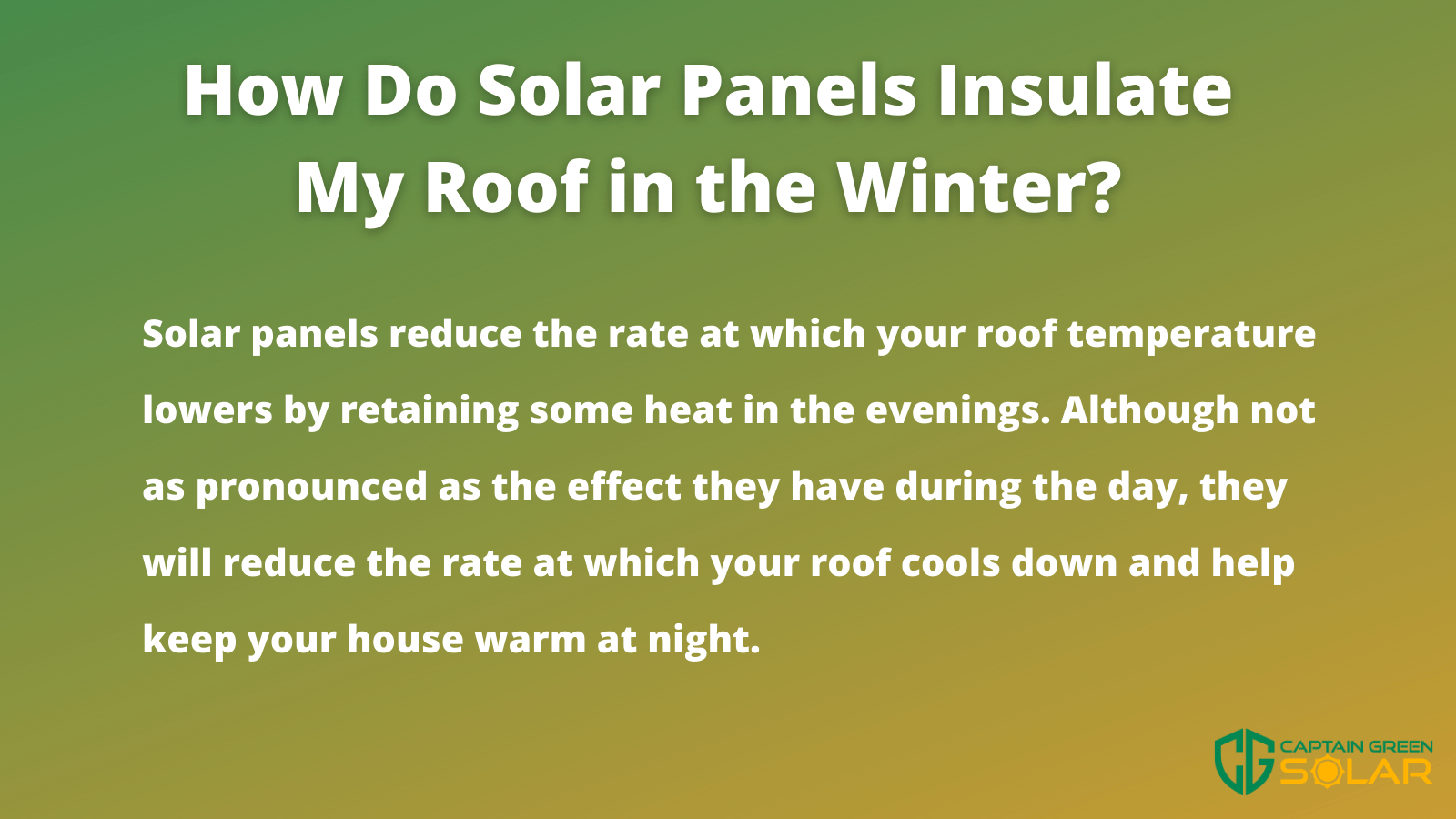
So, do solar panels cool your roof? Yes! They help reduce the amount of heat energy hitting your roof and produce clean, renewable energy in the process. Not only is investing in solar panels a great way to use clean, renewable energy, and reduce your electricity bill and emissions. They also save you money by increasing the energy efficiency of your building, reducing heating and cooling costs.
If you are looking to take advantage of the many benefits solar-powered technology offer, look no further than Captain Green. At Captain Green, we have been installing and seeing the benefits of solar panels in Australia for over ten years. We provide our customers with the best solar solutions that are recognised across the industry. Our fully qualified and experienced team has helped install over 270,000 panels for our happy customers. If you would like more information on the benefits of solar panels or discuss your solar options, talk to the team at Captain Green today.

